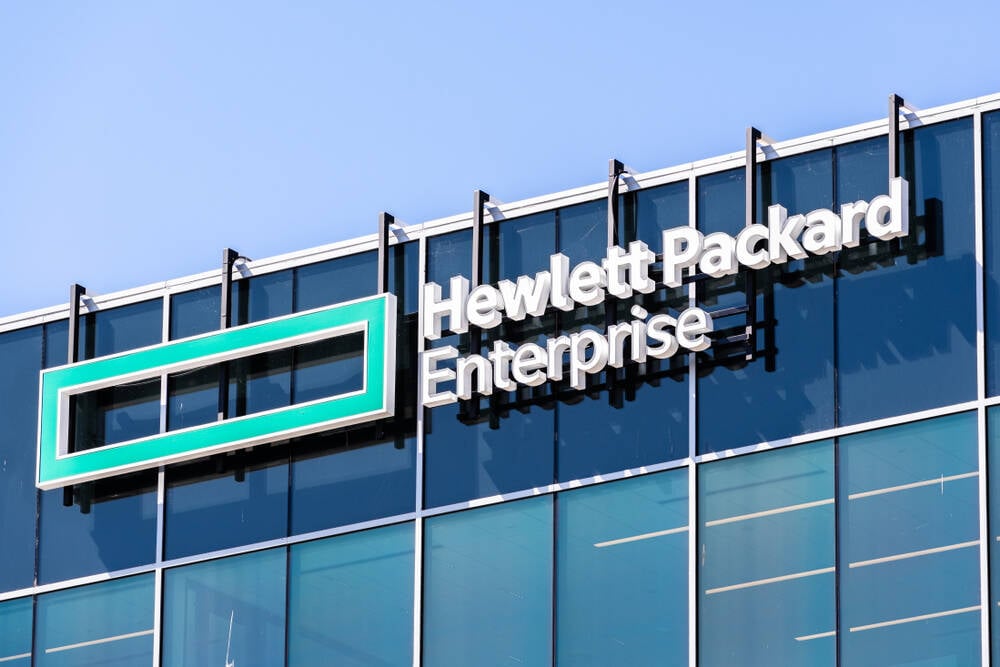HPE's $14B Juniper Takeover Slams Into Dept Of Justice Roadblock

The US Department of Justice (DoJ) has sued to block Hewlett Packard Enterprise's $14 billion acquisition of Juniper Networks.
The suit filed in California's Northern District Court makes the case that the merger would eliminate competition and result in less choice and higher prices for consumers.
Specifically, the Department of Justice is worried about consolidation within the wireless LAN (WLAN) market, where it says HPE and Juniper are already the second and third largest providers of the technology.
"HPE and Juniper are successful companies. But rather than continue to compete as rivals in the WLAN marketplace, they seek to consolidate – increasing concentration in an already concentrated market," Omeed A. Assefi, Acting Assistant Attorney General at the Justice Department's Antitrust Division, said in a statement Thursday.
The DoJ argues the merger is a strategic move to eliminate a key competitor in the WLAN market that was eating into HPE's profit margins, pointing to statements made by HPE salespeople and executives prior to the acquisition's announcement.
"Just a month before the proposed acquisition was announced, front-line HPE salespeople were concerned that '[t]he Juniper threat [was] dire' because in dozens of opportunities, Juniper was 'trying to unseat' HPE," a DoJ statement reads. "One former HPE executive reminded his team that 'there are no rules in a street fight' with Juniper and encouraged them to 'kill' Juniper when going head-to-head for sales opportunities."
- HPE probes IntelBroker's bold data theft boasts
- App stores unconvinced by Trump's TikTok ban pause, which may itself be on shaky legal ground
- Biden's antitrust crackdown on tech M&As may linger into Trump's reign
- DoJ wants Google to sell off Chrome and ban it from paying to be search default
"We believe the Department of Justice’s analysis of this acquisition is fundamentally flawed and we are disappointed in its decision to file a suit attempting to prohibit the closing of the transaction," HPE and Juniper said in a joint statement on Thursday.
"We will vigorously defend against the Department of Justice’s overreaching interpretation of antitrust laws and will demonstrate how this transaction will provide customers with greater innovation and choice, positively change the dynamics in the networking market by enhancing competition, and strengthen the backbone of U.S. networking infrastructure," the joint statement added.
The companies contend that the arguments raised in the DoJ suit are "disconnected from market realities," and that the merger is actually "pro-competitive," as the WLAN segment is already "extremely competitive." "The transaction will not impede the ability of other WLAN vendors to vigorously compete," they note.
The suit comes just over a year after HPE announced its intention to acquire Juniper in a deal then valued at $40 per share or about $14 billion.
The deal was expected to effectively double the size of HPE's networking segment. When all was said and done, HPE estimated its networking division would contribute to more than half of its annual operating income.
However, overlap in the companies' businesses, most notably the fact HPE already owned WLAN vendor Aruba, which would conflict with Juniper's Mist division, ultimately attracted the ire of antitrust watchdogs.
While HPE was ultimately able to secure the green light from the UK's Competition Markets Authority and European Commission, it seems the company's efforts to assuage the DoJ's concerns have fallen short. ®
From Chip War To Cloud War: The Next Frontier In Global Tech Competition
The global chip war, characterized by intense competition among nations and corporations for supremacy in semiconductor ... Read more
The High Stakes Of Tech Regulation: Security Risks And Market Dynamics
The influence of tech giants in the global economy continues to grow, raising crucial questions about how to balance sec... Read more
The Tyranny Of Instagram Interiors: Why It's Time To Break Free From Algorithm-Driven Aesthetics
Instagram has become a dominant force in shaping interior design trends, offering a seemingly endless stream of inspirat... Read more
The Data Crunch In AI: Strategies For Sustainability
Exploring solutions to the imminent exhaustion of internet data for AI training.As the artificial intelligence (AI) indu... Read more
Google Abandons Four-Year Effort To Remove Cookies From Chrome Browser
After four years of dedicated effort, Google has decided to abandon its plan to remove third-party cookies from its Chro... Read more
LinkedIn Embraces AI And Gamification To Drive User Engagement And Revenue
In an effort to tackle slowing revenue growth and enhance user engagement, LinkedIn is turning to artificial intelligenc... Read more

